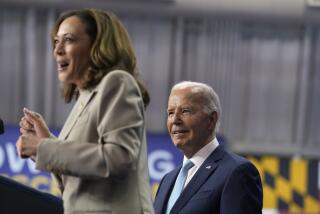Panel Hears Pleas for Controls : House Probes Rising Medication Prices
- Share via
WASHINGTON — Prescription drug makers have unfairly raised prices and profits at the expense of the sick and the old, congressmen and spokesmen for the elderly charged Tuesday.
“The drug companies are fleecing the public by continually and ruthlessly raising prices of widely used drugs, particularly those used by the elderly,” William R. Hutton, executive director of the National Council of Senior Citizens, told a House subcommittee. “The increases are huge and unconscionable, and cannot be justified on any economic basis.”
Drug manufacturers’ representatives argued, however, that the price increases have been necessary. “Essential medications are costly, but the tremendous benefits and the cost-effectiveness associated with prescription drugs fully justifies the price,” said Douglas G. Watson, president of Ciba-Geigy’s pharmaceuticals division.
Retail prices for prescription medicines have increased 12.2% since July 1, 1985, while the consumer price index was rising just 2.7%, according to a survey conducted by the House Energy and Commerce subcommittee on health and the environment. Overall, the study found that drug prices jumped more than 79% between January, 1981, and December, 1986, while the cost-of-living index was rising 28%.
“Unless the industry can provide an adequate explanation for these price hikes, one can only conclude that what is going on is greed on a massive scale,” the subcommittee chairman, Rep. Henry A. Waxman (D-Los Angeles) said. “This particularly affects the elderly, most of whom live on fixed incomes.”
The rising prices have brought increased pressure for congressional regulation or extension of Medicare coverage to include prescription drugs. Tuesday’s hearing was to follow up on a similar session almost two years ago. In the previous hearing, the pharmaceutical companies told the subcommittee that hefty price increases between 1981 and 1985 had been temporarily necessary to pay for improved research and development techniques.
The subcommittee’s survey of 24 major drug manufacturers found, however, that prices went up $4.7 billion while research and development expenditures rose only $1.6 billion.
“What I’m hearing today is that we’re not facing a short-term increase in drug prices, but a permanent part of what the elderly and the sick are going to have to pay each year,” Waxman said. “People are going to ask: ‘If we’re not getting self-restraint from the industry, why aren’t elected officials doing something to protect us?’ ”
The Pharmaceutical Manufacturers Assn. has estimated that it takes seven to 10 years and about $113 million to develop a new medication for the market.
Executives of major drug producers, including Ciba-Geigy, Warner-Lambert and Abbott Laboratories, argued that they have been hurt by increased competition from makers of generic drugs, foreign manufacturers, the time it takes for the Food and Drug Administration to approve a new product, soaring premiums for product-liability insurance and competitors that violate patents.
“Unless we can afford to make substantial investments in research today, we cannot develop innovative medical treatments for future decades,” Watson said.
The price problem is more immediate for elderly people who must stretch limited incomes to cover the costs of food, shelter and other necessities, said Jack Guildroy of the American Assn. of Retired Persons.
“Price increases in recent years seem to ignore the fact that prescription drugs are necessary, not discretionary items,” Guildroy said.
More to Read
Get the L.A. Times Politics newsletter
Deeply reported insights into legislation, politics and policy from Sacramento, Washington and beyond. In your inbox twice per week.
You may occasionally receive promotional content from the Los Angeles Times.










